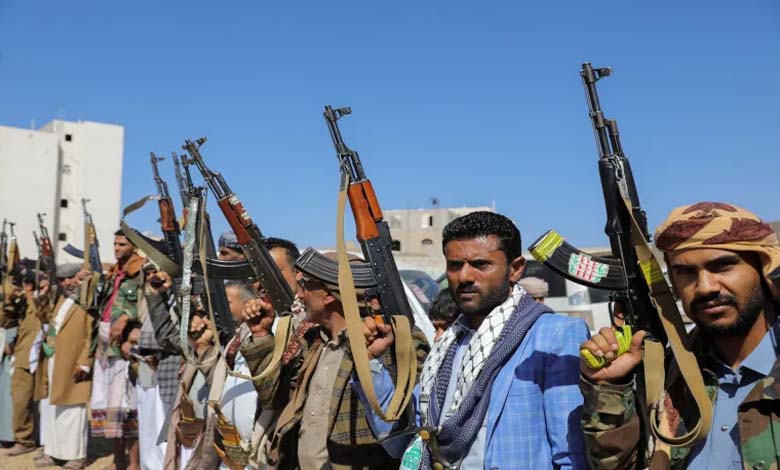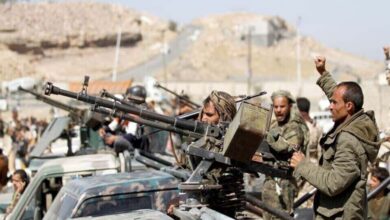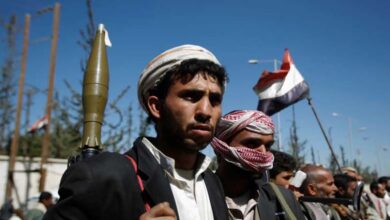Houthi Leader’s Defection Reveals Cooperation Between the Militias and Al-Qaeda

An assassination carried out by Al-Qaeda members and the defection of a man falsely claiming the rank of “colonel” within the Houthis have revealed clear cooperation between the terrorist organization and the militias.
-
Houthis detain UN staff, including UNICEF representative
-
Between Denial and Confusion: Why Did the Houthis Delay Announcing Their Casualties?
The two incidents are closely linked. The story began on October 20, 2018, when Al-Qaeda members, with Houthi support, assassinated tribal sheikh Ali Abdullah Maqbel Al-Salahi in the Sharab Al-Salam district of Taiz province, Yemen.
The killing deeply shocked his son, Salah, who was then living abroad. He returned to his hometown in the Al-Amjoud area of Taiz to mobilize his relatives, seek justice for his father, and pursue the perpetrators.
Salah Al-Salahi succeeded in tracking down and arresting those accused of his father’s assassination and bringing them to trial. This prompted the Houthi militias to attempt to absorb him into their military ranks, hoping to use his tribal influence to control northern and western Taiz.
-
The Deluge toll: 1,000 Houthis killed in 19 months
-
Food for loyalty… how the Houthis turned their territories into a vast prison
What happened next?
On May 25, 2025, the Houthi-controlled Special Criminal Division issued a verdict sentencing seven people to death for the assassination of Sheikh Ali Al-Salahi. However, the militias later entered secret negotiations with Al-Qaeda to release them as part of a prisoner exchange deal between the two sides.
The Houthi militias asked Salah Al-Salahi—whom they had appointed commander of the 10th “Samad” Brigade and promoted to “colonel”—to renounce his father’s blood in exchange for recording him as a “martyr” in their ranks. This was intended to facilitate the release of the convicted assassins under the prisoner exchange deal with Al-Qaeda.
-
62 Years since October 14… A memory inspiring Yemenis in confronting the Houthi coup
-
Al-Hassan al-Murani: the Houthi operative weaving the militia’s web of alliances in the depths of terrorism
The sources added that Al-Salahi refused to give up his father’s rights, which led the Houthi leader Noor Al-Din Al-Marani, designated as “Deputy Commander of the Fourth Military Region,” to threaten him with death and liquidation.
Consequently, Salah Al-Salahi, who had been falsely holding the rank of “colonel,” defected from the Houthi militias and joined the legitimate government forces—a move that exposed the internal divisions among the Houthis and the covert cooperation between the militias and Al-Qaeda.
-
Call for an international coalition against the Houthis: Experts stress collective action as essential for deterrence
-
Houthis Claim Responsibility for Attack on Cargo Ship in the Gulf of Aden
Fragile cohesion
During his time with the Houthi militias, Salah Al-Salahi used his military and tribal position to expand his social influence in the Houthi-controlled areas of Taiz and Ibb.
As a prominent field commander, he played a key role in the Houthis’ offensive operations in the central and southern regions, particularly on the Taiz and Lahj fronts. His defection now threatens the already fragile military cohesion of the militias in these strategic areas.
After Al-Salahi’s defection and his joining of the Yemeni army in Marib, the Houthis deployed reinforcements from Saada and Hajjah to Taiz, fearing further setbacks in parts of the province under their control.
-
The exposed collusion: when the Muslim Brotherhood and the Houthis unite against South Yemen
-
Terrorism Alliances: Decoding Houthi–Al-Qaeda Cooperation
Observers believe that Al-Salahi’s defection could provide valuable security, military, and intelligence insights into the structure and operations of the Iran-backed group, especially since he commanded a force that formed the backbone of the Houthi militias on southern and central fronts.
On Tuesday, Salah Al-Salahi officially announced his defection from the Houthis, accusing the militias of wreaking havoc on Yemeni society and destroying the non-liberated provinces, including Taiz. He declared that he had witnessed many Houthi crimes firsthand and emphasized that Yemeni unity is essential to confront these “oppressive militias.”












